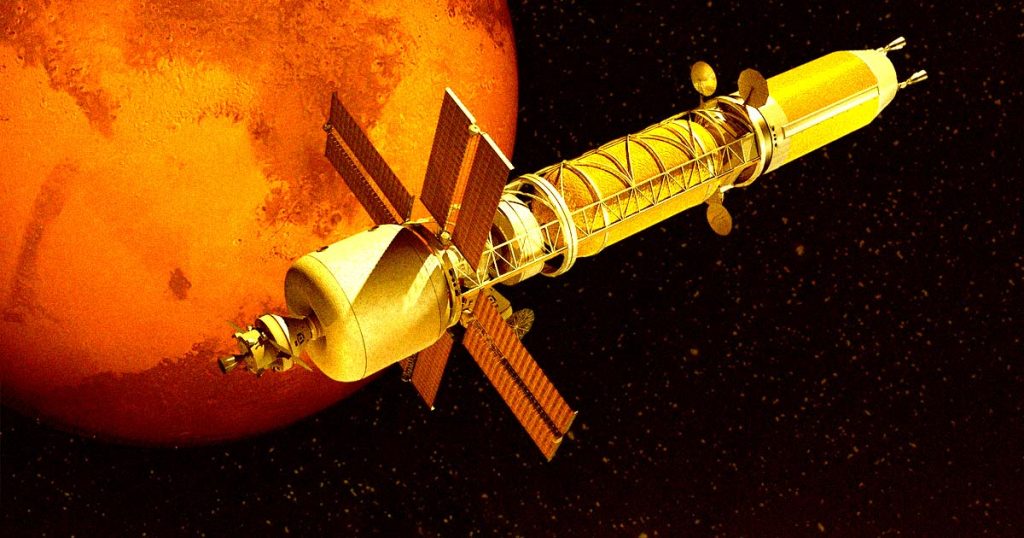Going Nuclear
Scientists have long proposed nuclear fission-fueled rockets to get to Mars fast — but one is warning that making it happen will be an uphill battle.
In an explainer for The Conversation, nuclear engineering expert Dan Kotlyar noted that fueling rockets with nuclear fission, which results from the energy emanated from splitting atoms, will indeed cut the years-long journey to and from Mars by a wide margin.
One of the chemical compounds that goes into the production of nuclear fuel, however, makes those dreams difficult to achieve.
Kotlyar, a nuclear and radiological engineering assistant professor at the Georgia Institute of Technology, pointed out that the United States government and major companies like General Electric funded development into nuclear thermal propulsion technology.
Starting in the mid-1950s and ending in 1973, these government-funded experiments used enriched uranium to create the fission products that fuel them — the same uranium that has since become greatly mistrusted and highly regulated because it’s also a key component in the production of atom bombs.
Because of its highly politicized nature, normal uranium is a hot commodity that isn’t easy to access — but there is another solution, albeit one that might make rockets heavier.
Reduce, Reuse, Recycle
Looking to convert the valuable and volatile compound into something more peaceful, the US Department of Energy launched in 2009 its Global Threat Reduction Initiative that turns highly-enriched uranium into what’s known as high-assay, low-enriched uranium (HALEU) fuel.
“High-assay, low-enriched uranium fuel has less material capable of undergoing a fission reaction, compared with highly enriched uranium fuel,” Kotlyar wrote. “So, the rockets [need] to have more HALEU fuel loaded on, which makes the engine heavier.”
Because nuclear thermal propulsion’s main value for space systems relies on its lightness, the use of HALEU fuel will weigh down rockets that use it — though as the expert notes, the government is also researching ways to make fission rockets more efficient so that less fuel will need to be on board.
Though not explicitly mentioned in his editorial, realizing these fission rockets could prove difficult for other reasons as well. For one, procuring enriched uranium could prove difficult. The Biden administration banned uranium imports from Russia this year due to growing political tensions.

